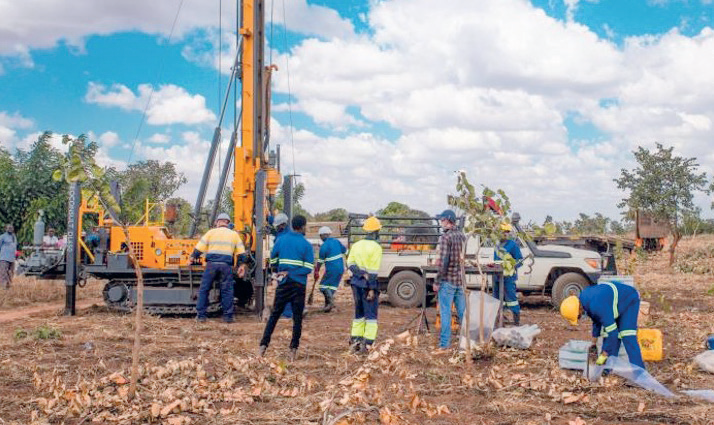By Grace Phiri
Copyright mwnation

Export Development Fund (EDF), a wholly-owned subsidiary of the Reserve Bank of Malawi (RBM), has said mining will have positive knock-on effects for macroeconomic stability, including boosting foreign exchange reserves if revenue is managed efficiently.
In its report titled ‘Mining for Prosperity: Charting a business-friendly path to export diversification, EDF noted that overall, the rise of the mining sector will diversify Malawi’s export basket, reduce over-reliance on tobacco and improve foreign exchange earnings.
Reads the report in part: “It is important to note that these are potential contributions, realising them requires overcoming significant hurdles.”
The World Bank projections indicate that by 2027, mining could account for about 12 percent of the country’s gross domestic product.
In terms of exports, the Bretton Woods institution estimates that Malawi’s mining sector could generate a cumulative $30 billion (about K53 trillion) in exports from 2026 to 2040, with annual mineral export revenues reaching about $3 billion (about K5.2 trillion) by 2034.
But, EDF report shows that the bulk of this growth will come from green minerals such as graphite, titanium (rutile), niobium and rare earths in line with global demand for inputs to clean energy and high-tech industries.
Drilling down into the composition of this projected growth, rutile and graphite from the Kasiya Project in Kasiya, Lilongwe make up the largest segment followed by rare earth elements, niobium/tantalum, and uranium while gold and other minerals represent a small fraction.
EDF data further show that rutile and graphite are expected to contribute the largest share, potentially 40 to 50 percent of mining exports, given the project’s scale while rare earth elements could contribute around a quarter of revenues as Malawi becomes a supplier of neodymium and praseodymium and other critical rare earth elements.
In an interview yesterday, mining consultant Grain Malunga said with prudent management, the mining sector has potential to increase government revenue through taxes.
He said: “Direct taxes include royalties, company income tax, withholding tax, value-added tax, ground rent, non-resident tax, import duties on plant and equipment.
“These will eventually surpass revenue from agriculture exports. The economy will grow and increase foreign exchange generation.”
Mines and Mineral Regulatory Authority director general Samuel Sakhuta said in an earlier interview that the authority will ensure policies are timely formulated without bureaucracy-induced delays from the Ministry of Mining.
Meanwhile, Reserve Bank of Malawi has revised upwards its 2025 mining sector growth projection to 6.3 percent from 5.6 percent, citing the resumption of uranium production at Kayelekera Uranium Mine in Karonga District.
The central bank projects mining output will rise further to 7.2 percent in 2026, reinforcing expectations that extraction will once again become a key contributor to national output.



